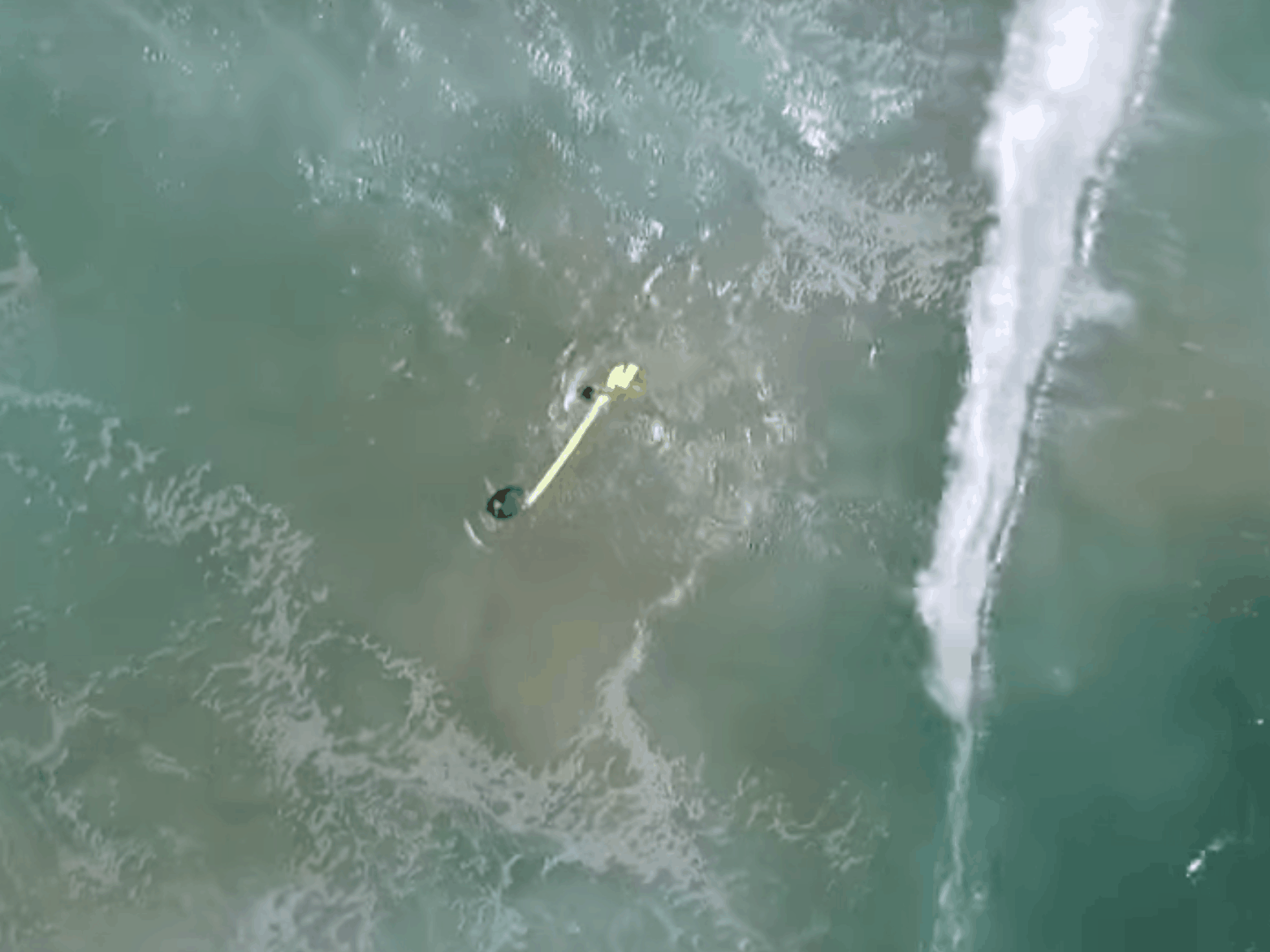
Two teenage boys, struggling to make their way back to shore, were saved by a drone in Australia on Wednesday, in what officials say is a first-of-its-kind rescue mission by an unmanned aircraft — one captured by the drone’s camera and later broadcast by Arab News and other outlets.
A beachgoer caught a glimpse of the distressed swimmers, 15 and 17, who were fighting dangerous waves off Australia’s Far North Coast in New South Wales. He alerted lifeguards, who happened to be in the middle of a drone training session, learning how the unmanned aerial vehicles (UAV) work.
Lifeguard supervisor Jai Sheridan got the call and piloted the drone, dubbed “Little Ripper,” toward the swimmers, about 2,300 feet over the ocean. Within 70 seconds the drone was hovering over the boys and had dropped a self-inflating rescue pod into the water.
“I was able to launch it, fly it to the location, and drop the pod all in about one to two minutes. On a normal day that would have taken our lifeguards a few minutes longer to reach the members of the public,” Sheridan told The Sydney Morning Herald.
The swimmers grabbed the yellow floating tube and made their way safely back to shore, exhausted but unharmed.
“The Little Ripper UAV certainly proved itself today,” Sheridan said. “It is an amazingly efficient piece of lifesaving equipment and a delight to fly.”
John Barilaro, the state’s deputy premier, described the rescue as historic in an interview with the BBC. “Never before has a drone fitted with a flotation device been used to rescue swimmers like this,” he said.
Without the drone, it could have taken lifeguards three times as long to reach the boys. Parliamentary Secretary Ben Franklin observed that fatigue can be one of the leading causes of drowning at sea.
“This was an extraordinary rescue with the very best outcome,” he said to The Sydney Morning Herald.
The rescue came on the heels of a statewide $340,000 investment in drone technology, which is currently in a trial period.

